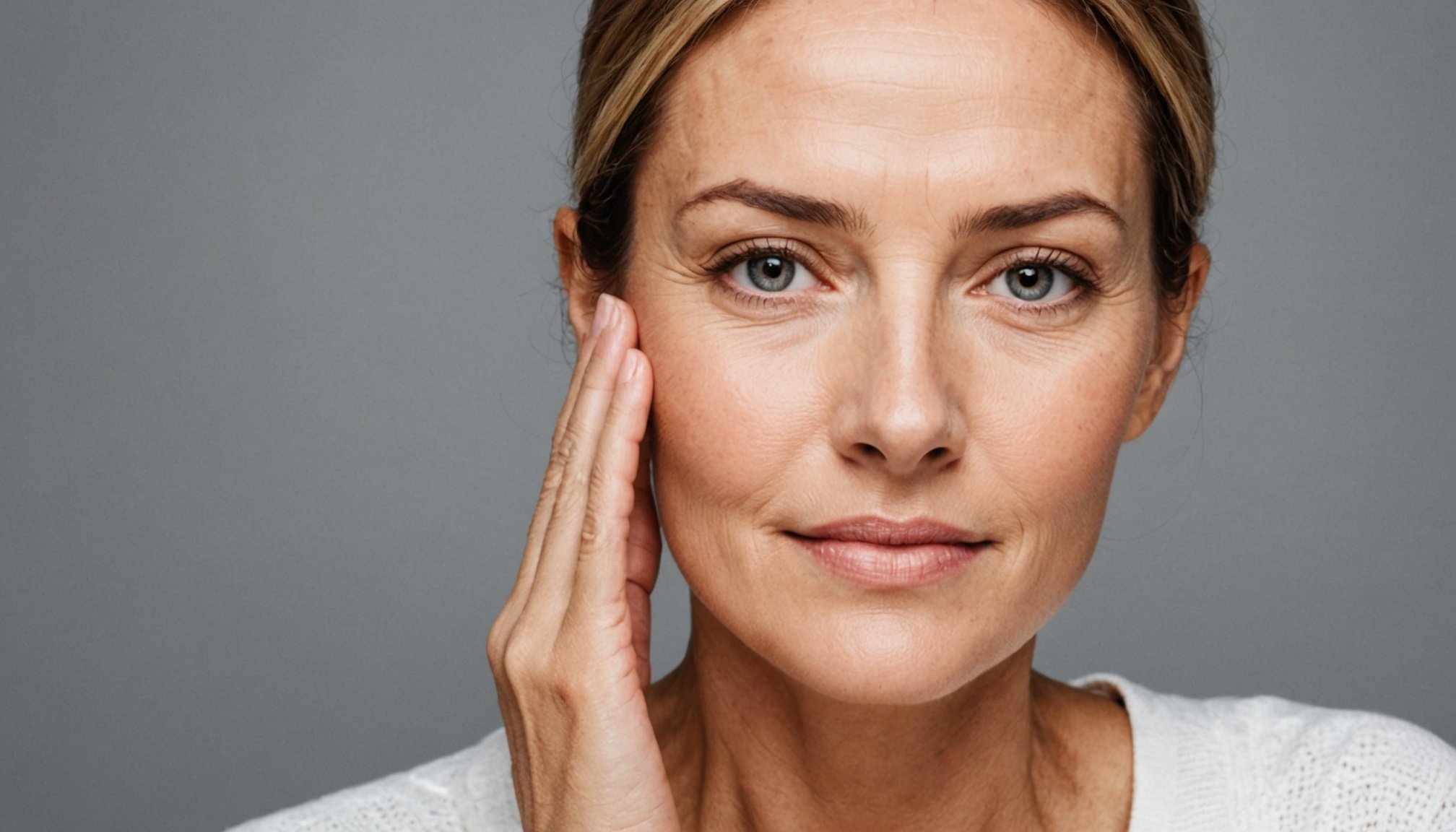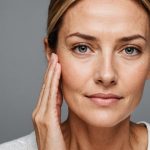Aging gracefully begins in your thirties. Early signs of aging can trigger concerns, but with the right skincare strategy, you can embrace this transformative decade. Discover essential tips tailored for women in their thirties that address specific skin needs. From targeted products to lifestyle changes, empower yourself with knowledge that fosters a radiant complexion. It’s time to combat those early signs and feel confident in your skin again. Your journey to glowing skin starts here.
Understanding Aging in Your Thirties
Entering your thirties often brings noticeable aging signs that can impact self-image and confidence. Common early signs of aging include fine lines, particularly around the eyes and mouth, and a loss of skin elasticity. These changes occur as collagen production naturally decreases, leading to less firm and supple skin.
In the same genre : Unlocking Women”s Wellness: Natural Dietary Tips for Hormonal Balance and Enhanced Vitality
Understanding these skin changes is crucial for maintaining skin health. During this decade, being proactive about skincare awareness can help mitigate some of these effects. Regular use of sunscreen, a balanced diet, and hydration are key elements in preserving skin vitality. Incorporating products with ingredients like retinoids and antioxidants can also support skin health by promoting cell turnover and protecting against environmental stressors.
The psychological impact of aging on self-image can be significant. As physical changes become more apparent, it is common for individuals to experience shifts in confidence. Embracing these changes with a positive mindset and focusing on self-care can help alleviate some of these concerns. By fostering a healthy relationship with your appearance, you can navigate this decade with grace and assurance. Understanding and adapting to the aging process empowers you to make informed decisions about your skincare routine and overall well-being.
Also to see : Transform Your Leather Jacket: Creative Customization Tips to Showcase Your Unique Style
Building an Effective Skincare Routine
Establishing a skincare routine is vital for maintaining healthy skin, especially as you navigate your thirties. A well-structured daily regimen can help counteract early aging signs and enhance skin vitality.
Essential steps in a skincare routine include cleansing, toning, moisturising, and sun protection. Cleansing removes impurities, while toning balances skin pH. Moisturising hydrates the skin, and sunscreen protects against UV damage. Consistency in these steps is crucial for optimal results.
Product layering is another key aspect. Applying products in the correct order ensures maximum absorption and effectiveness. Begin with lighter, water-based products and progress to heavier, oil-based ones. This method enhances the benefits of each product and supports overall skin health.
Morning routines should focus on protection and hydration. Use a gentle cleanser, followed by a moisturiser with SPF. In the evening, the focus shifts to repair and rejuvenation. Incorporate products like retinoids and serums, which promote cell turnover and repair.
Adhering to a consistent daily regimen not only supports skin health but also boosts confidence. By understanding the importance of each step and product layering, you can tailor your routine to meet your skin's unique needs, fostering a healthier, more radiant appearance.
Key Ingredients to Look For
Selecting the right anti-aging ingredients is crucial for an effective skincare routine. These skincare actives can significantly enhance your skin's appearance and health.
Effective Anti-Aging Ingredients
- Retinol: A derivative of Vitamin A, retinol is renowned for promoting cell turnover and reducing fine lines. It can be incorporated into evening routines, ideally after cleansing and before moisturising.
- Hyaluronic Acid: Known for its hydrating properties, this compound can hold up to 1000 times its weight in water, making it perfect for plumping and moisturising skin. Use it after cleansing and before any heavier creams.
- Vitamins C and E: These antioxidants protect against environmental damage and brighten skin tone. Vitamin C serums are best applied in the morning, while Vitamin E can be used at night for repair.
Incorporating Ingredients
When adding these beneficial compounds to your routine, start with one product at a time to monitor your skin's reaction. Gradually increase usage to avoid overwhelming your skin.
Potential Side Effects
Some skincare actives may cause irritation or dryness. To mitigate this, introduce them slowly and use a moisturiser to maintain hydration. If irritation persists, consult a dermatologist for tailored advice.
The Role of Sun Protection
Understanding the importance of sun protection is vital for maintaining skin health, especially as you age. Daily application of sun protection is crucial, regardless of weather conditions, as UV damage can occur even on cloudy days.
Types of Sun Protection
There are two primary types of sun protection: chemical and physical. Chemical sunscreens absorb UV rays and convert them into heat, which is then released from the skin. Physical sunscreens, often containing zinc oxide or titanium dioxide, act as a barrier that reflects UV rays away from the skin. Choosing the right type depends on personal preference and skin sensitivity.
SPF Importance
Selecting products with an appropriate SPF (Sun Protection Factor) is essential. SPF 30 is generally recommended for daily use, offering adequate protection for most skin types. For prolonged outdoor activities, higher SPF levels may be advisable.
Application Techniques
To maximise effectiveness, apply sunscreen generously to all exposed skin areas. Reapplication every two hours, or after swimming or sweating, ensures continued protection. Incorporating sun protection into your routine can significantly reduce the risk of premature aging and skin damage, supporting a healthier complexion.
Lifestyle Changes to Support Skin Health
Adopting a healthy lifestyle can profoundly influence your skin's appearance and vitality. Let's explore how a balanced diet for skin and proper hydration can make a difference.
Diet and Hydration
A nutrient-rich diet is essential for glowing skin. Incorporate foods high in antioxidants, like berries and leafy greens, to combat oxidative stress. Omega-3 fatty acids found in fish and flaxseeds help maintain skin elasticity. Proper hydration is equally crucial; aim for at least eight glasses of water daily to keep skin plump and hydrated.
Sleep and Stress Management
Adequate sleep and stress management are often overlooked yet vital for skin health. Lack of sleep can lead to dull skin and the development of fine lines. Prioritise 7-9 hours of quality sleep each night. Managing stress through mindfulness techniques or exercise can reduce cortisol levels, which may otherwise lead to breakouts and other skin issues.
Recommended Lifestyle Changes
- Balanced Diet: Focus on whole foods rich in vitamins and minerals.
- Hydration: Drink sufficient water and limit caffeine and alcohol.
- Sleep: Establish a regular sleep schedule.
- Stress Management: Incorporate relaxation techniques into your daily routine.
These lifestyle adjustments can help maintain youthful skin and enhance overall well-being.
Expert Insights and Recommendations
In your thirties, skincare expert tips can be invaluable for maintaining a youthful complexion. Dermatologists emphasise the importance of understanding your skin type to tailor your routine effectively. For instance, if you have oily skin, opt for lightweight, non-comedogenic products to prevent clogged pores. Conversely, those with dry skin should focus on hydrating formulas rich in ceramides and hyaluronic acid.
Professional advice often highlights the significance of using targeted treatments. Dermatologists recommend incorporating retinoids for their anti-aging benefits, as they boost collagen production and reduce fine lines. Additionally, antioxidants like Vitamin C can protect against environmental damage and brighten the skin.
When selecting products, consider dermatologist recommendations for trusted brands known for their efficacy and safety. Brands such as La Roche-Posay and CeraVe are frequently suggested for their dermatologist-tested formulations.
To personalise your skincare routine, assess your specific concerns, such as pigmentation or sensitivity. Consult a skincare professional to develop a regimen that addresses these issues while maintaining overall skin health. By following expert guidance, you can achieve a balanced and effective skincare routine tailored to your needs, ensuring your skin remains healthy and radiant throughout your thirties.











